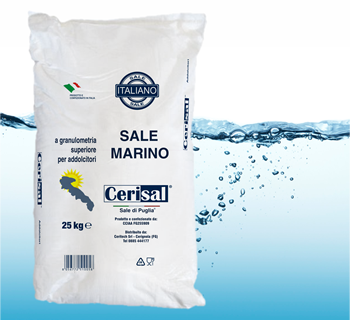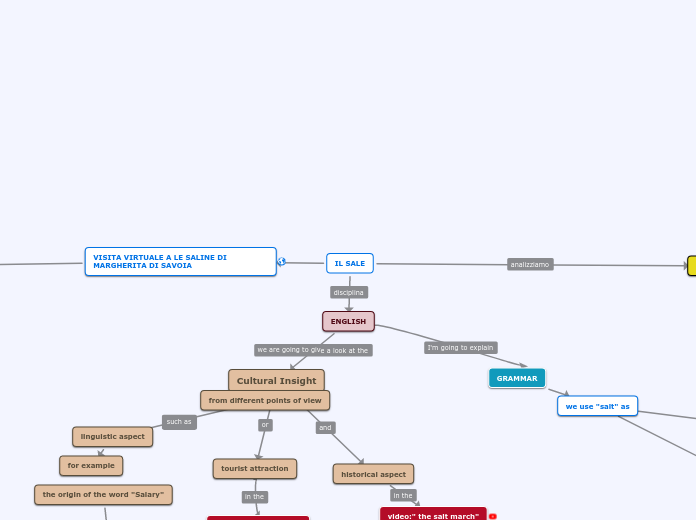IL SALE
VISITA VIRTUALE A LE SALINE DI MARGHERITA DI SAVOIA
SCIENZE INTEGRATE- FISICA
PROCESSO DI PRODUZIONE DEL SALE
Convogliamento Acqua di mare nei bacini interni (o vasche saline)-n.6 stazioni di pompaggio
lungo e tortuoso
365 giorni
Trasferimento acqua dal mare alla prima vasca più interna (acqua vergine)
deposito/eliminazione ossidi ferro
vasche successive
deposito di carbonato di calcio
vasche successiva
deposito solfato di calcio
vasche "CONSERVE"e la successiva "SERVITRICE"
deposito di SALE - cloruro di sodio (NACL)
Raccolta
trasporto
caratteristiche del sito
Terreno argilloso
Vicinanza al mare
GESTIONE DI UN'AZIENDA
AZIENDA PRODUZIONE SALE
CERITECH S.R.L.
TRASFORMAZIONE TECNICO ECONOMICA
DISINVESTIMENTO
VENDITA PRODOTTO FINITO

CERISAL-SALE DI PUGLIA
INVESTIMENTO
VIDEO SALINE
ACQUISTO MATERIA PRIMA
ENGLISH
GRAMMAR
we use "salt" as
Cultural Insight
tourist attraction
video:" the salt hotel"
typical Bolivian dishes
historical aspect
video:" the salt march"
Gandhi's protest against the British tax imposition on salt
It led to independence of India in1947
from different points of view
infinite to salt
we like to salt our food
past participle - salted
He has salted his food
a verb
regular
paradigma
is
past - salted
I salted my food
it can become a phrasal verb
some people throw salt over their shoulder
Uncountable noun
water, sugar, milk.......
things you can't count
a/an or numbers
it is uncorrect to say:I have a milk/two milks for breakfast
always singular
the verb is always singular
the origin of the word "Salary"
that we can find in
the reading " PASS THE SALT"
